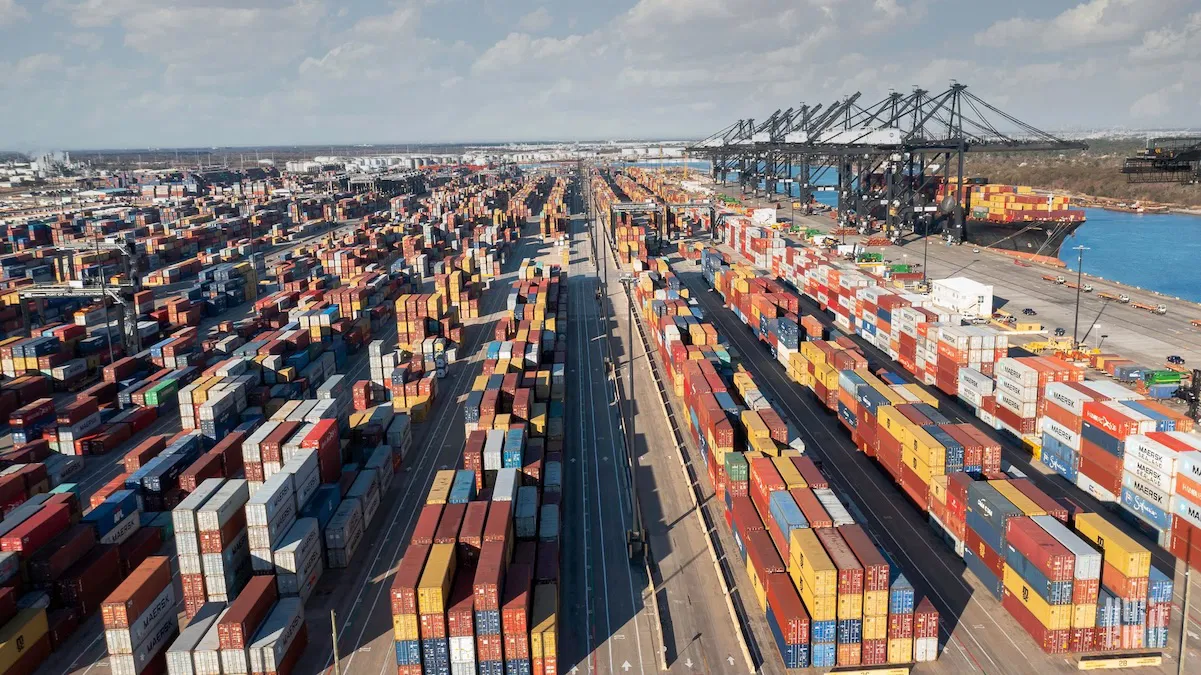Verstoringen in de toeleveringsketen begrijpen
Het landschap van de mondiale toeleveringsketens heeft een aanzienlijke transformatie ondergaan als gevolg van voortdurende verstoringen. Problemen zoals geopolitieke instabiliteit, klimaatveranderingen verschillende sociaal-economische factoren dragen bij aan een complexe omgeving. Bedrijven moeten een proactieve aanpak hanteren om de efficiëntie te behouden te midden van deze uitdagingen.
Belangrijkste opmerkingen
- Aanhoudende verstoringen in mondiale toeleveringsketens een proactieve benadering van de bedrijfsvoering noodzakelijk maken.
- Strategieën moeten zich richten op het navigeren door "samengestelde verstoringen", het benutten van data-analyse en grondige scenario planning voor beter risicomanagement.
- Samenwerking tussen vervoerders en verladers is essentieel voor het verbeteren van de veerkracht en flexibiliteit van de toeleveringsketen.
- Investeringen in human resources en technologie zijn essentieel voor real-time inzichten en effectief supply chain management.
Verschuivende paradigma's in de wereldhandel
De bedrijven van tegenwoordig opereren in een tijdperk dat wordt gekenmerkt door onzekerheid, waarin supply chain resilience is cruciaal geworden. Een recente discussie onder leiding van experts van een toonaangevend logistiek bedrijf beschreef hoe bedrijven kunnen floreren ondanks de talloze verstoringen waarmee ze in het huidige mondiale landschap worden geconfronteerd.
Tijdens dit gesprek onderstreepte een vooraanstaand expert uit de industrie hoe geopolitieke spanningen en veranderend beleid de handel beïnvloeden. Experts adviseren belanghebbenden - van verladers tot exporteurs - zich schrap te zetten voor aanhoudende volatiliteit en zich voor te bereiden op een steeds veranderend klimaat in de dynamiek van de toeleveringsketen.
De invloed van geopolitiek
Geopolitieke factoren spelen een rol bij het vormgeven van toeleveringsketens. De onzekere staat van internationale betrekkingen, in combinatie met onverwacht handelsbeleid, introduceert complexiteiten die bedrijven moeten erkennen in hun strategieën. Het is essentieel te begrijpen dat verstoringen niet simpelweg politiek zijn; ze komen vaak voort uit elementen zoals klimaateffecten, extreem weer en arbeidsconflicten.
Samengestelde verstoringen: een nieuwe realiteit
Naarmate verstoringen meer met elkaar verweven raken, worden bedrijven geconfronteerd met wat experts noemen samengestelde verstoringen. Deze gebeurtenissen—waarbij meerdere uitdagingen samenkomen—scheppen een nieuw landschap voor handelsactiviteiten. De oproep tot actie is duidelijk: bedrijven moeten hun denkwijze veranderen om zich aan te passen aan een wereld waarin verstoringen geen uitzonderingen zijn, maar de norm.
Uitdagingen in het verschiet en de weg voorwaarts
Kijkend naar de toekomst, hebben experts een aantal belangrijke uitdagingen vastgesteld waar organisaties medio 2025 mee te maken zouden kunnen krijgen. Onder deze, tariefonzekerheden aanzienlijke risico's met zich meebrengen. Juridische onduidelijkheden rondom tarieven creëren een mist waar bedrijven doorheen moeten navigeren, wat een impact heeft op logistiek en handelsplanningstrategieën.
De klimaatuitdaging
Klimaatrisico's vormen ook formidabele uitdagingen voor ondernemingen. Voorspellingen wijzen op een warmer en droger klimaat in bepaalde regio's, wat kan leiden tot natuurrampen zoals bosbranden of orkanen. Bedrijven moeten strategieën ontwikkelen die klimaatbestendigheid integreren in hun kernactiviteiten om deze gevolgen te beperken.
Een proactieve benadering van veerkracht
De dringende vraag voor bedrijven is of ze een proactieve houding moeten aannemen of een 'afwachtende' benadering moeten kiezen. Marktleiders pleiten voor onmiddellijke actie. De noodzaak voor human resources en strategische voorbereiding om snelle veranderingen aan te pakken is crucialer dan ooit.
Door te focussen op risicovisibiliteit en scenario planning kunnen organisaties anticiperen op mogelijke verstoringen in plaats van alleen maar te reageren. Data wordt een essentieel hulpmiddel in deze vergelijking en biedt inzichten die helpen bij het voorspellen van de impact op vrachttermijnen en beschikbare opties.
De rol van digitalisering en data
Digitalisering is integraal voor het opbouwen van een veerkrachtige toeleveringsketen. Experts benadrukken de noodzaak van een uitgebreide evaluatie van digitale processen. Het is cruciaal om technologie te benutten voor real-time inzichten en interoperabiliteit binnen de toeleveringsketen. Organisaties moeten een digital-first benadering omarmen en zich aanpassen aan minder traditionele systemen die beter op crises kunnen reageren.
Samenwerking: De sleutel tot succes
Samenwerking tussen vervoerders en verladers komt naar voren als een cruciale strategie om de veerkracht te vergroten. Deze teamwork faciliteert de efficiënte informatiestroom en maakt geïnformeerde besluitvorming mogelijk in de hele toeleveringsketen, waardoor uitdagingen worden omgezet in kansen voor groei.
Investering in menselijke en technologische middelen
De oproep tot investeringen in beide human resources en technologie kan niet genoeg worden benadrukt. Bedrijven worden aangespoord zich voor te bereiden op mogelijke verstoringen door hun personeel uit te rusten met de vaardigheden die nodig zijn om een snel veranderend landschap te navigeren. Het benutten van data helpt organisaties bij het vinden van bruikbare inzichten, waardoor ze naar een veerkrachtigere toekomst worden geleid.
Conclusie: Logistiek vereenvoudigen met GetTransport.com
De reis naar het verbeteren van de veerkracht van de toeleveringsketen is vol uitdagingen, maar opent ook wegen voor innovatie en efficiëntie. Hoewel verschillende inzichten en ervaringen richting kunnen geven aan de besluitvorming, gaat er niets boven persoonlijke ervaring in het veld. GetTransport.com onderscheidt zich als een veelzijdig platform dat betaalbare en betrouwbare wereldwijde vrachttransportdiensten biedt, afgestemd op uiteenlopende behoeften, van kantoor- en huisverhuizingen tot het bezorgen van grote items en meer.
Via GetTransport.com kunnen lezers uitzonderlijke transportoplossingen vinden die de logistieke efficiëntie verbeteren zonder onnodige kosten te maken. De transparantie en het gemak dat wordt geboden, stelt bedrijven en particulieren in staat om naadloos door hun logistieke behoeften te navigeren. Boek uw vrachttransport met GetTransport.com vandaag!

 Navigeren door turbulente wateren: Veerkracht van de toeleveringsketen in een onstabiele wereld">
Navigeren door turbulente wateren: Veerkracht van de toeleveringsketen in een onstabiele wereld">